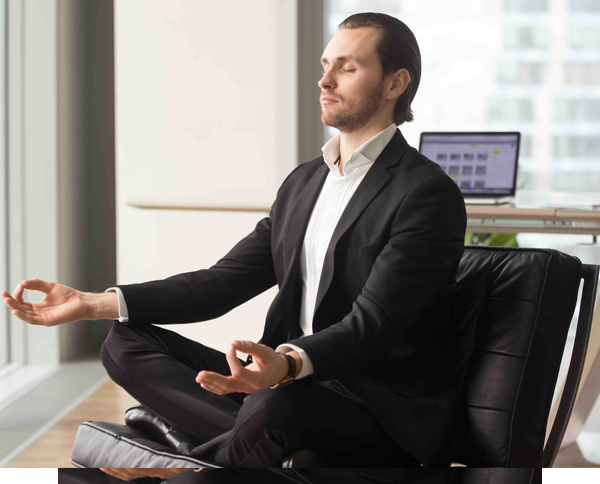Why should most CEOs practice mindfulness
Why should most CEOs practice mindfulness
—Alan Watts
It is also a practice shared by most of the world’s cultural and religious systems and is closely related to various methods of meditation—such as those derived from the Zen tradition and Tibetan meditative practice. Today, mindfulness is widely known and used in medicine, education and psychology.
At its core, mindfulness meditation is the practice of being in the present moment as consciously as possible. This means being mindful of every movement, situation, breath… Over time, using this method, it is possible to increase the power of focus concentration, relieve stress, become more empathetic, etc.
How to practice mindfulness?
Naturally, this skill depends largely, like any other, on practicing it. Many types of meditation, for example, focus the mind on the present through attention to breathing (from the moment of birth until death, the human being inhales and exhales); others focus on the physical sensations of the body in real time, on the movement or on the sounds that exist around us. The mind naturally tends to wander and lean towards compulsive and obsessive thinking, but the technique is to bring it back without frustration, without judgment, over and over again. It is not about not thinking but observing your thoughts and returning.
With the passage of time and daily practice, the goal is no longer just to put our attention in the present but to hold it that way at will. In this way, the exercise becomes a habit and then it is possible to start practicing it inadvertently, resulting in the way of life that allows us greater awareness and the possibility of experiencing the moments of life more fully.
The benefits of mindfulness for CEOs
The reason is that there is definitely something about mindfulness practice that seems to benefit CEOs more than physical training and other types of relaxation.
Specialists in mindfulness training for companies affirm that the growing interest among business leaders in this type of practice is mainly due to the benefits it has provided them, among which is the development of leadership skills, understanding, openness and optimism.
Mindfulness research concludes that mindfulness training improves three skills that are key to successful leadership in the 21st century: resilience, collaboration, empathy, and the ability to navigate complex conditions.
On a physical level, the practice of conscious attention is capable of developing and strengthening neural circuits in the same way that a muscle is strengthened when it is exercised; it is capable of reducing stress, insomnia, depression and anxiety; it also radically strengthens our ability to focus and concentrate.
On a less individual level, the practice of these disciplines has a potential for community transformation, as it is capable of bringing us closer to others in unexpected ways by strengthening our ability to listen to others without judging, always with kindness, generosity and compassion.
Finally, the practice of mindfulness allows a glimpse of how dazzling the present can be as it is—a lesson as simple as it is complex and as refreshing as it is essential.
Final Words
The relationship between mindfulness and leadership is a fact. The question is, how long will it take to be integrated as an essential theme of managerial development in companies? Time will tell, but if a company wants to increase its effectiveness and lead the changing market, it must seriously study the implementation of mindfulness programs among its employees, and especially among its managers.
We believe in collaborative relationship-based care where our Ayurvedic Doctors, Ayurvedic Practitioner, Ayurvedic Supplement Brands, Ayurvedic Nutritionists & Chefs, Yoga, and Meditation Trainers are in sync. Contact the team who passionately works together to hold your hand in this healing journey.




